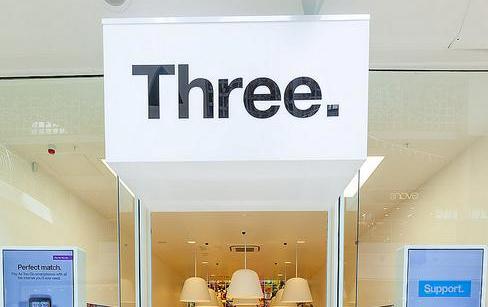Three has announced the launch of a new two-year partnership with EasyJet to build out its loyalty programme for customers.
August 2, 2018

Three has announced the launch of a new two-year partnership with EasyJet to build out its loyalty programme for customers.
As part of the agreement, Three customers will be able to check in hand luggage for free, while also taking advantage of priority boarding amongst other benefits including a free tote bag for carry-on essentials. This partnership is the latest to buffer the Three customer experience strategy which also includes tie-ups with Snapchat.
The partnership could said to be based on O2’s Priority engagement strategy, which has been incredibly successful over the years. It also demonstrates a different mentality to what we are used to when it comes to telcos; reward current customers with incentives, as opposed to simply focusing on bolstering subscriber numbers.
The loyalty app itself, Wuntu, now has 1.1 million active users, up from 350,000 over the last twelve months, and features 400 partners. Over the course of the first six months of 2018, there was a total of 1.5 million offer redemptions from customers, up from 400,000 in the same period of 2017. Partners include the likes of Hotel Chocolat, Dominos and Belle Italia, though EasyJet could arguably be described as one of the more significant wins.
“The EasyJet partnership gives us a big chance to influence our customer’s experience in the airport,” said Three CEO Dave Dyson. “It’s a company which has a very like-minded audience, and is a chance to bring extra value to customers.”
For the moment, the scope of the partnership is limited, but there are two years to play around with new ideas; Dyson said to expect a variety of new offers. Snapchat is another example of a partnership which could work out very well for the business. In both examples, Three has identified brands with similar audiences and identified a pain-point to address; queues in the airport and data consumption with Snapchat users. These are two examples of a company pragmatically identifying how it can add value to the experience, without making risky plays through diversification.
Like O2’s Priority initiative, Three is playing a low risk game. The value is being presented to the customer, though it is an option. Some telcos have gone down the content route to enhance the experience, but this could prove to be expensive (just ask Gavin Patterson). By offering other brands access to its subscriber base, and in return gaining exclusive offers for customers, it is a win-win situation.
The idea of brands audience sharing is not new, but it is extremely effective. By asking customers to download an app, its less intrusive than the traditional means of spamming, and opens up a huge number of opportunities. More importantly, Three is looking inwards, caring for the customers it has, not simply reserving attractive offers for new customers; this is an excellent way to isolate a current customer and destroy a relationship.
There are of course numerous studies online which argue the point of customer retention versus acquisition, with some claiming acquiring new customers can be five times more expensive than retention. Caring for a customer, creating a relationship which makes them feel valued, is also an excellent way to increase revenues in other areas of the business. Just look at the brand and loyal customer which Apple has created over the years; many of these iLifers would choose to purchase Apple products over others irrelevant whether there are better or cheaper options.
Loyalty programmes are not uncommon, but many seem to be slap-dash and only present because it seems to be the right thing to do. That said, we get the impression Three has seen the light and might start treating current customers with the attention they deserve.
About the Author(s)
You May Also Like








.png?width=300&auto=webp&quality=80&disable=upscale)


_1.jpg?width=300&auto=webp&quality=80&disable=upscale)


.png?width=800&auto=webp&quality=80&disable=upscale)